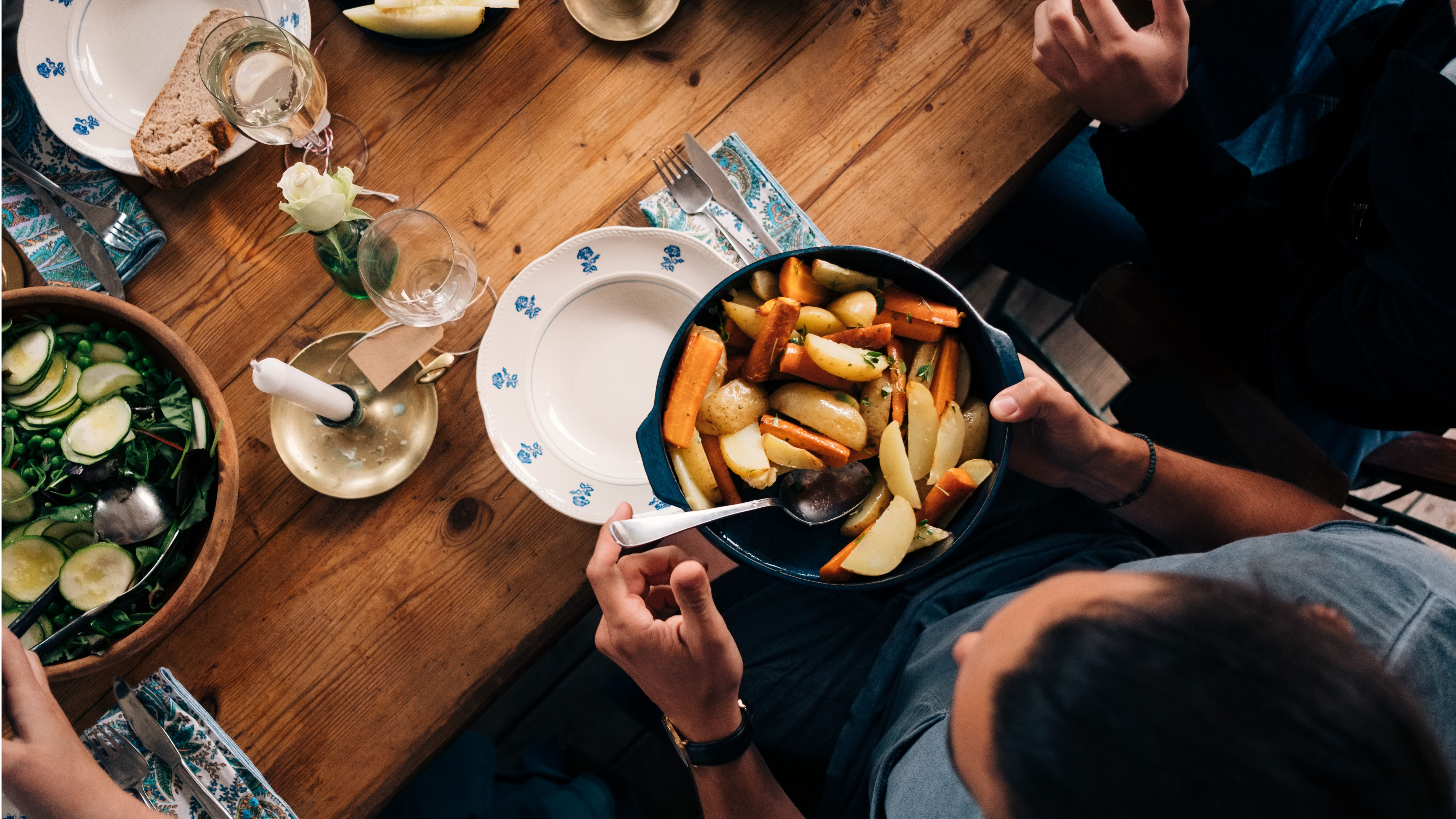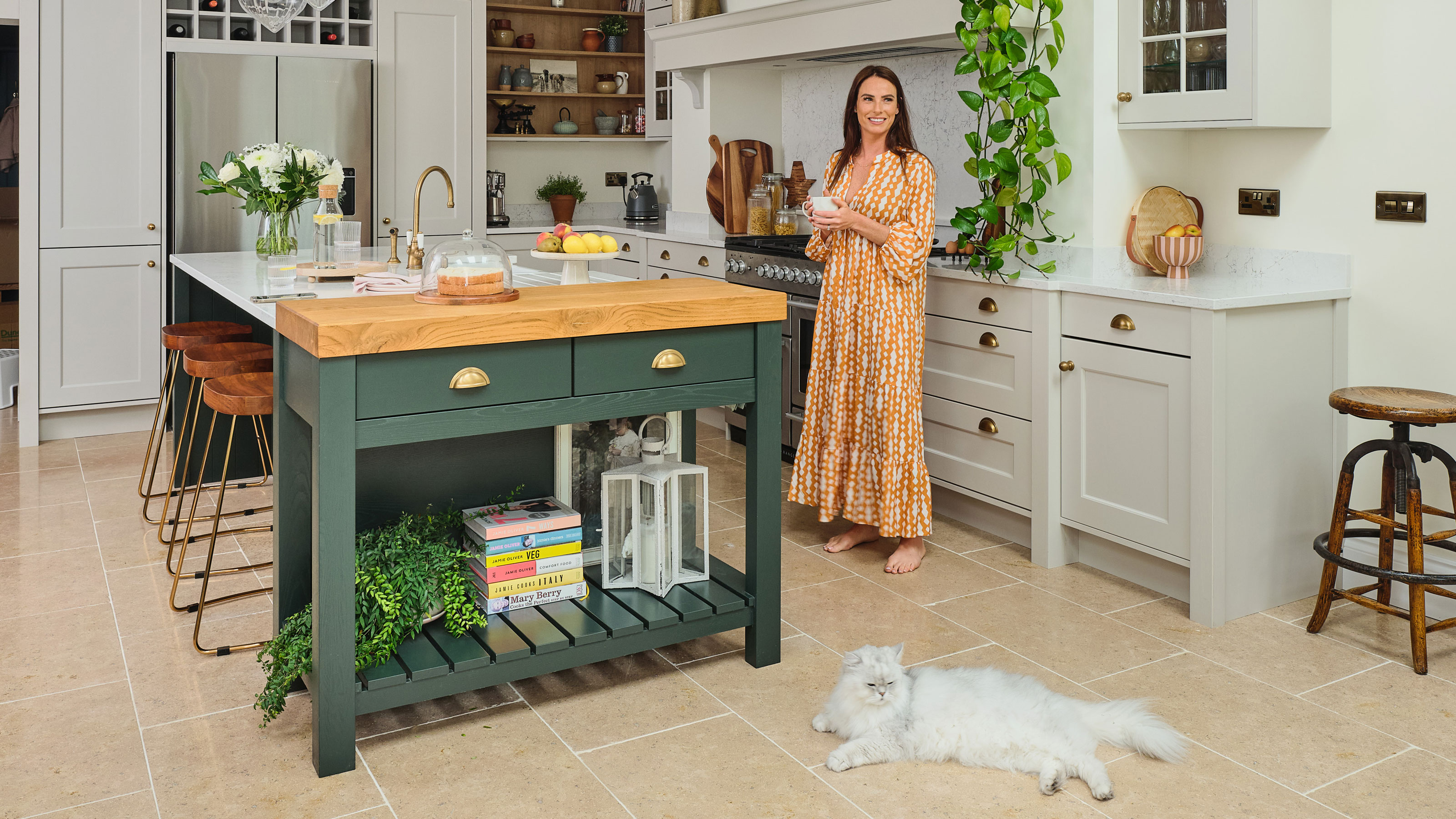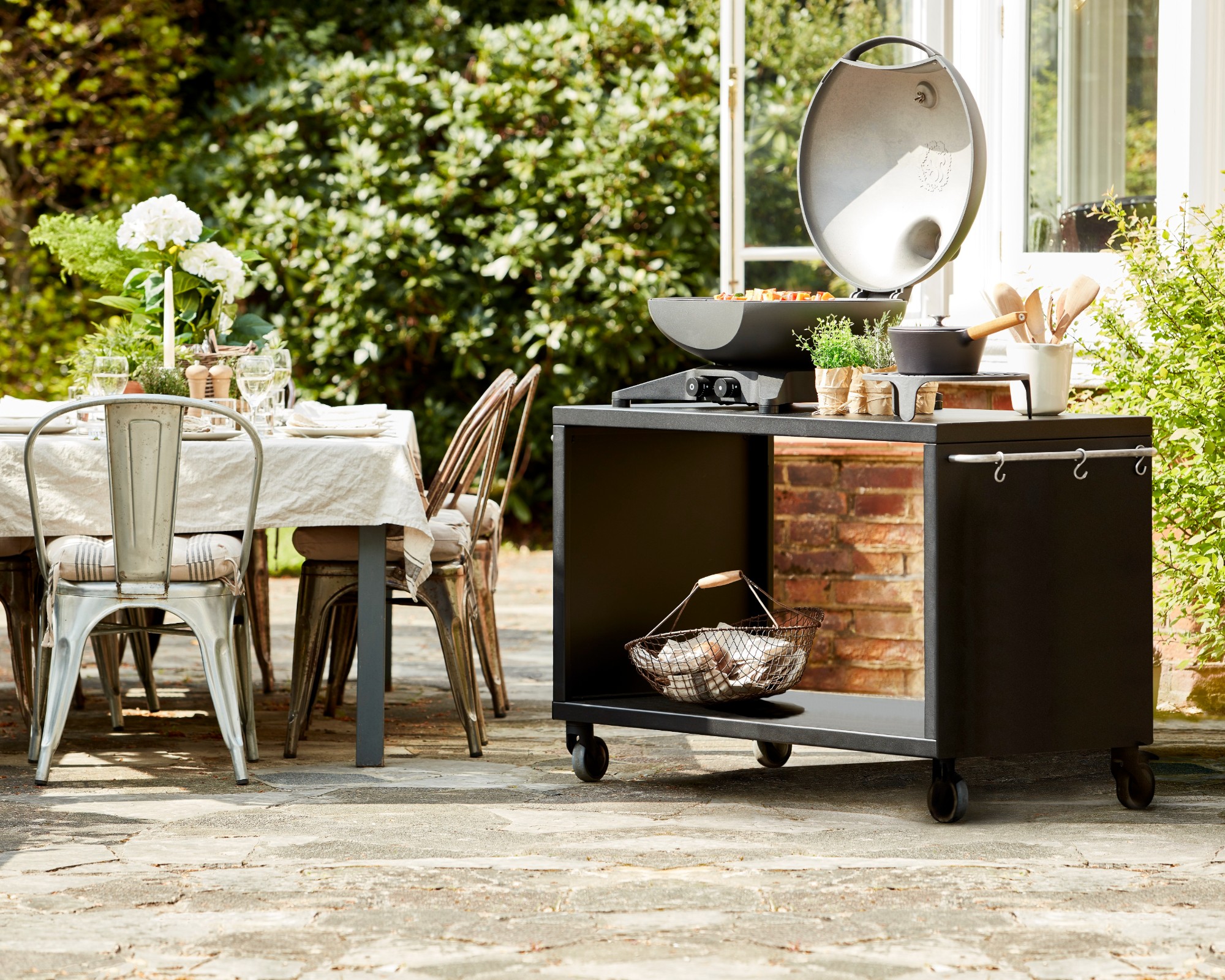

If not all of the potatoes were devoured at dinner, and if you just don't fancy more potatoes on your dinner menu for the next couple of days, then you might be wondering how to avoid wasting your leftover spuds. Asking whether you can freeze potatoes may seem like a silly question, but it's really not, as you actually can. So why not give freezing them a go? Not only does freezing potatoes allow you to reduce food waste – and prevent you from wasting money – but de-frosting frozen potatoes will also speed up the cooking process, mid-week.
Whether you're working with roasted potatoes, mash, or the boiled variety, we'll teach you the best way to freeze them all. It's easier than you might think and is a much better option than binning the poor spuds. And if yours are as yet uncooked, find out how to store potatoes so they stay fresher for longer.
For more ways to reduce your food waste, and for plenty of recipe inspiration, why not head over to our food hub.
How to freeze roast potatoes
How you freeze your roast potatoes will depend on how far through the cooking process you are. If you've parboiled your potatoes, pre-roasting, and been left with an overwhelming sense that you've cooked way too many, there's still time to make the best of the situation.
Simply remove your excess potatoes, season with salt and pepper, coat with flour and a little fat, then transfer to a container for storage – they can be stored in your freezer for up to four months. When you come to use your potatoes, roast as you usually might for up to 40 minutes. You'll be surprised just how crispy your freeze-ahead roasties are.
If you've already roasted your potatoes, don't fear, there's hope for them yet! Place your potatoes into a freezer container – either all together, or in separate single-serve portions. Place in the freezer and store for up to four months. Ensure they're thoroughly defrosted before using.
- Find out how to make roast potatoes in our guide
How to freeze boiled potatoes
It's possible to freeze boiled potatoes too, though you may encounter some texture changes once they're defrosted. This shouldn't put you off though, perhaps it would just be an idea to mash your potatoes once they've thawed to counteract this issue.
To successfully freeze your boiled potatoes, we'd recommend spreading them on a large baking tray for at least the first five hours. From there, they can be transferred into a a single container for easy storage. This step may seem pointless, but it will prevent them from sticking together which is good news in the long term.
How to freeze mashed potatoes
It's more than possible to freeze mashed potato for future use. In fact, you may be surprised just how much you can speed up your mid-week meals by working with frozen mash. And while it may be tempting to simply shove your mash into a freezer container, and hope for the best, there are a few tips worth considering for a better experience.
We'd recommend splitting your mash into small, round patties wrapped in clingfilm – make sure it's biodegradable – and storing on a flat baking tray for the first 24 hours. From there, they can be transferred into the same box to free up some space in your freezer.
Aim to use your frozen mash over the next couple of weeks, as it doesn't tend to store too well.
Join our newsletter
Get small space home decor ideas, celeb inspiration, DIY tips and more, straight to your inbox!
Emily first (temporarily) joined the Real Homes team while interning on her summer break from university. After graduating, she worked on several publications before joining Real Homes as Staff Writer full time in mid-2018. She left the brand in 2020 to pursue another career, but still loves a second-hand bargain and sourcing unique finds to make her rented flat reflect her personality.
-
 You won't believe this stunning five-bed family home used to be a tiny two-bed
You won't believe this stunning five-bed family home used to be a tiny two-bedKatie and Stuart went big with a double-story extension to create a dream space for themselves and their daughters
By Ifeoluwa Adedeji Published
-
 The freestanding bath in this dreamy bedroom is sheer five-star luxury
The freestanding bath in this dreamy bedroom is sheer five-star luxuryEmma and Martin wanted a suite just like in an upscale hotel — mission totally accomplished.
By Ellen Finch Published
-
 I just know 2023 is going to be all about black bedding sets
I just know 2023 is going to be all about black bedding setsWhite sheets are out, black bedding sets are in — here's everything you need to know about this bedroom decor trend
By Louise Oliphant Published
-
 A bland beige bathroom is transformed into a STUNNING contemporary sanctuary
A bland beige bathroom is transformed into a STUNNING contemporary sanctuaryFirst-time homeowners Ellie and Oliver’s new bathroom is a well-planned fusion of modern pieces and exotic touches
By Ellen Finch Published
-
 Mattress disposal: how, where, and how much it will cost?
Mattress disposal: how, where, and how much it will cost?Mattress disposal is tricky. You’ve swapped it for a supportive new design, but how to dispose of the bulky old mattress? Follow our guide to find out...
By Sarah Warwick Published
-
 36 outdoor kitchen ideas – enviable and inspiring designs for your backyard
36 outdoor kitchen ideas – enviable and inspiring designs for your backyardEnjoy alfresco cooking and entertaining all year round with the best outdoor kitchen ideas for every space and budget.
By Sarah Warwick Last updated
-
 Real home: Gorgeous green kitchen has a fresh feel
Real home: Gorgeous green kitchen has a fresh feelA stunning extension and Charley Smith's clear design vision has resulted in a family kitchen-diner that’s ripe for entertaining.
By Ifeoluwa Adedeji Published
-
 [redirected] Best coffee beans: 12 delicious coffees to start your morning with
[redirected] Best coffee beans: 12 delicious coffees to start your morning withYour perfect cup of coffee starts with the coffee bean. We're sharing our best-bagged beans from coffee shop favorites to gourmet roasters.
By Jaclyn Turner Published